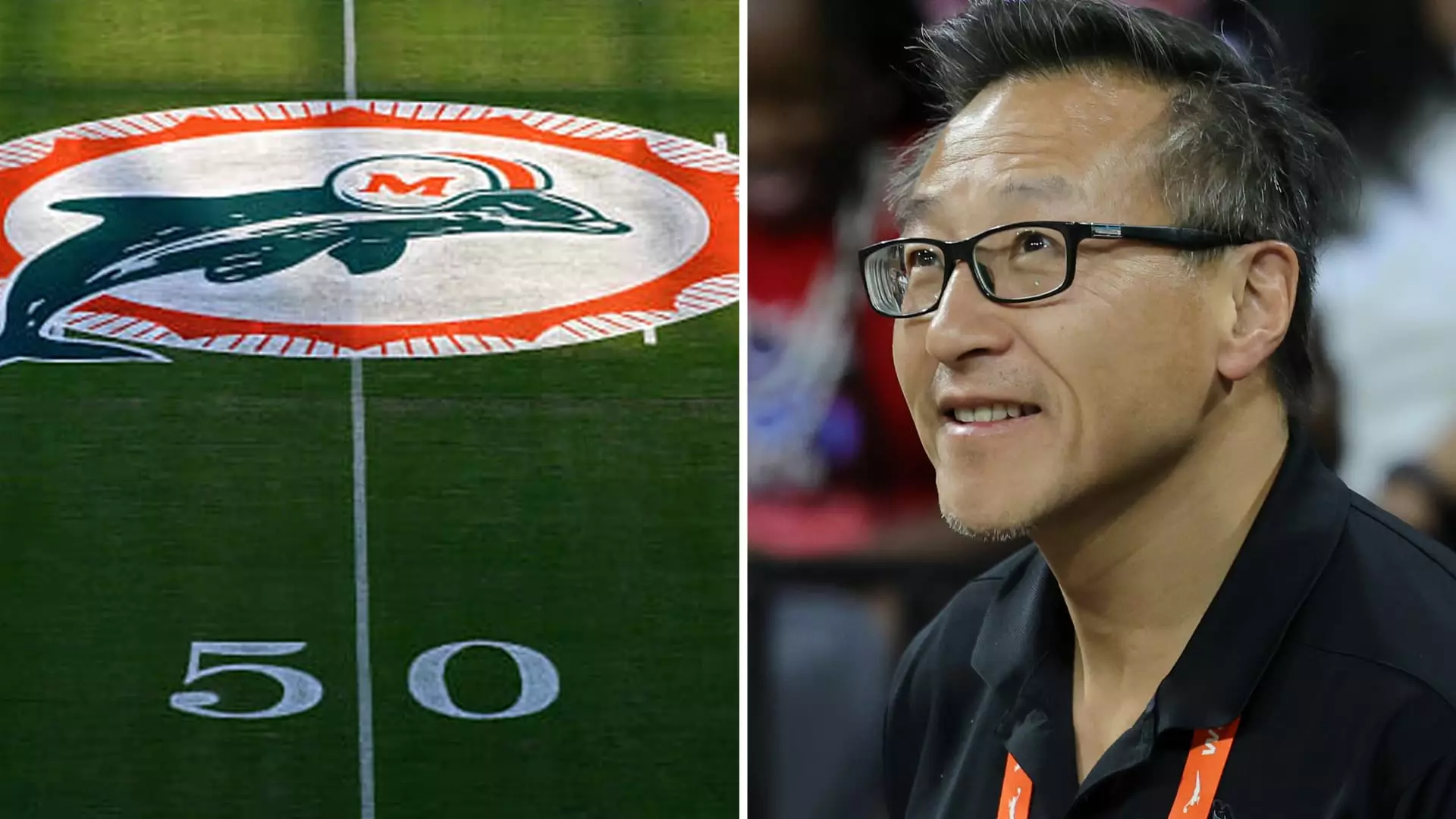In a significant development for the sports industry, the Miami Dolphins are reportedly engaged in advanced discussions to offload a minority stake to private equity firm Ares Management and billionaire Joe Tsai, owner of the Brooklyn Nets. This trend mirrors a broader shift among professional sports team owners who are increasingly keen to diversify their portfolios to encompass multiple franchises and leverage stadium operations for enhanced revenue generation. The proposed deal, which includes not just the Dolphins but also the rights to Hard Rock Stadium, the Miami Grand Prix Formula 1 race, and a substantial share of the Miami Open, pegs the total valuation at an impressive $8.1 billion. This valuation indicates a growing appreciation for the commercial potential of sports franchises and associated ventures.
According to insider sources, should a controlling interest be valued, it would likely exceed $10 billion. This presents a stark contrast to the Dolphins’ current valuation of $7.1 billion, which CNBC cites as the eighth most valuable team in the NFL. The negotiations involve Ares Management acquiring a 10% stake in the team while Tsai eyes an additional 3%. It is pertinent to highlight that this proposed stake sale marks a watershed moment for the NFL, as it will be the first instance of private equity investment since the league relaxed its financial investment rules just a few months prior.
This strategic pivot by NFL ownership reflects a response to an increasingly competitive and lucrative sports market, wherein investors are eager to capitalize on financial opportunities. As valuations for franchises soar, finding committed buyers can be challenging. The Dolphins’ revenue, which soared to $673 million in 2023, indicates the profitability potential of NFL teams, significantly bolstered by events held at their stadium.
Stephen Ross, who acquired the Miami Dolphins for $1.1 billion in 2009, is positioning the franchise for future growth by planning to reinvest the incoming capital into expanding his real estate interests in South Florida while also enhancing his sports investments. This complementary strategy not only augments the value of the Dolphins but also aligns with the trends of owner-operated stadiums producing multiple streams of revenue. Ross stands as a paradigm of modern ownership, adeptly blending sports and real estate ventures.
Interestingly, earlier this year, Ross rejected a staggering $10 billion offer for full control of the Dolphins, Hard Rock Stadium, and the Miami Grand Prix, signaling his intent to retain family ownership of the team. This stance illustrates a commitment to long-term stewardship over quick financial gains, a nuanced approach that is not frequently observed in the frequently transactional nature of professional sports.
August 2023 marked a pivotal moment for the NFL when owners voted to permit private equity firms to acquire up to a 10% interest in team ownership. This was particularly noteworthy, given that the NFL had historically been resistant to such forms of capital infusion, contrasting with other major sports leagues that welcomed outside investments. The league’s redirection was prompted by the need to embrace rising valuations that necessitated accommodating diverse investor profiles.
The acceptance of Ares Management — which oversees assets totaling $450 billion — as one of the few approved firms for investment into NFL franchises exemplifies this shift. This represents not merely a change in policy but signifies a broader evolution in how professional sports are financed in an era marked by escalating franchise values and evolving ownership structures.
Meanwhile, Joe Tsai’s ambition extends beyond the Brooklyn Nets and touches on multiple franchises, showcasing a calculated approach to establish a sports empire. With ownership stakes in the New York Liberty, the San Diego Seals, and the Las Vegas Desert Dogs, his portfolio signifies a diversification strategy aimed at maximizing the potential benefits of owning sports teams across different leagues. The co-ownership of Los Angeles FC in Major League Soccer only underscores this broader vision.
As the Miami Dolphins delve deeper into negotiations, the implications of this potential stake sale ripple beyond just financial numbers, hinting at the evolving landscape of sports ownership. The aggregate enthusiasm surrounding these discussions heralds a new chapter in sports investment — one characterized by strategic partnerships and diversified assets aimed at optimizing profitability.
This venture into private equity signifies more than just a financial transaction for the Dolphins; it encapsulates an era of progressive investment strategies transforming the fabric of professional sports. As we observe the outcomes of these negotiations, it becomes clear that the future of sports ownership lies at the intersection of finance, strategy, and innovation.

